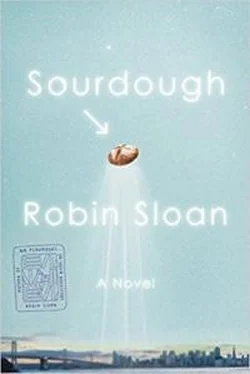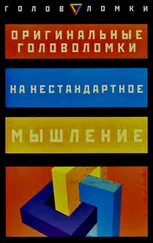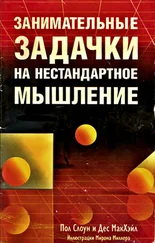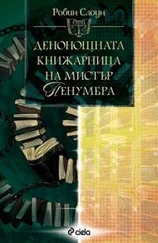Is it an exaggeration to say Clement Street Soup and Sourdough saved me? At night, instead of fitfully reviewing the day’s errors while my stomach swam and churned, I … fell asleep. My course steadied. I had taken on ballast in the form of spicy broth and fragrant bread and, maybe, two new friends, or sort-of-friends, or something.
Then they went away.
It was on a Wednesday in September that I dialed the number and was greeted by Beoreg, who said “Okay to hold?” as if he didn’t recognize me, then abandoned me to the sad-but-nice music for a very long time, so long in fact I suspected he’d forgotten me. When he came back on the line, he accepted my order dutifully and told me his brother would bring it soon. “Goodbye,” he murmured before hanging up. He’d never actually said that before.
When Chaiman knocked on my door, his sweet face was morose. He wasn’t listening to any music. The night seemed suddenly oppressively quiet.
“Hello, my friend,” he said limply. The bag containing my double spicy dangled limply from his fingers.
I took the bag and cradled it, felt the warmth of the soup across my chest. “What’s wrong?”
“We are leaving,” he said. “Visas, you know?”
This was unacceptable.
“We cannot stay. I would try, but Beoreg says … he does not want to be hidden forever. He wants to have a real restaurant. With tables.” Chaiman rolled his eyes, as if wishing to serve customers in a physical establishment constituted Versailles-level extravagance.
“We will miss you,” he said. “Me and Beoreg both.”
The bag in my arms crinkled, and so did the skin around my eyes. I wanted to wail, Don’t leave me! What will I eat? Who will I call? But all I could muster was “I’m so sorry to hear about this.”
He nodded. I did, too. It was September, and the air was very cold. He said, “I should tell you … Beoreg and I have a joke. When he gives me the bag”—he poked at the food in my arms—“and says, for Lois on Cabrillo Street, we always say together: the number one eater!”
I didn’t know what that meant, but I knew I had never been one before.
“It’s supposed to be nice. Because we like you. You know?”
I did.
Astride his motorcycle, Chaiman raised a hand and shook his index finger emphatically. Above the rev of the engine, he cried again: “Number one eater!”
THE SLURRY TABLE
WORK LOOKED LIKE THIS: me, sitting for twelve hours at my desk in the basement of a converted macaroni factory near the park where the Giants play. My company-issued laptop was hulking and loud, the roaring fan necessary to cool the superfast GPU within. At my desk, I hooked it into a pair of monitors, a keyboard, a tablet with stylus. No mouse. I’d learned the tablet trick from one of the patient programmers at Crowley, who recommended it as a ward against repetitive stress injury. Here at General Dexterity, the wraiths regarded it strangely. They could not yet imagine their bodies betraying them.
ArmOS was comprised of two lobes.
First there was Control, the code that told the arms how to move. It read their super-precise sensors, flexed their motor-muscles. The code was very compact and highly optimized, because any improvement to Control—a faster sensor reading, a firmer grip—applied to everything the arms did.
Then there was Task, the code that told the arms why to move. Task was a thrilling jumble of heuristics and hacks. If Control was all about one thing—moving in space—then Task was about a thousand things. The module called Stacking gave the arms a theory of gravity, balance, and layers, and right next door there was the module called Glassware, a hard-coded cheat sheet containing the dimensions, to the micrometer, of the world’s ten thousand most common scientific flasks and vials.
(In addition to Task and Control there was also Interface, the code that allowed users to control their arms and apply continuous ArmOS upgrades, all with a simple web app, but the other teams pitied Interface, because its work was so easy.)
My manager, Peter, had recently been promoted to oversee all of Control. I worked on the submodule responsible for Proprioception, which is, I think, a beautiful word— pro-pri-o-cep-tion! —and also the process by which organisms judge the position of their own body parts in space. It’s a crucial sense; definitely more important than a few of the Big Five. When you walk, you look forward, not down at your feet, because you are confident they are where you expect them to be, obeying your commands. That’s a pretty cool feature.
It was an unanticipated consequence of working on robot proprioception that I would often sit at my desk snaking my arms around in the air, trying to pay very close attention to what was happening. I’d close my eyes, extend a hand, lift it slowly while rotating it at the same time. What was I feeling? The weight of my own limb, yes; but also … a tendril of strange information. Not touch, exactly. Something else. Proprioception!
I did this quite a bit, for reasons both technical and therapeutic, and once, I opened my eyes to find Peter standing there, silently watching me propriocept. I yelped.
My persistent stomachache had been diagnosed after a consultation at General Dexterity’s in-house clinic (next to the dentist and the masseuse) as stress-related. The nurse plucked a brochure from a thick stack; its title, printed in Dextrous blue, was Taking Care of Yourself While You’re Changing the World .
It was Peter who recommended switching to the liquid meal replacement that he and many of the other programmers preferred, and that seemed easier to digest under the circumstances, which were extreme and unrelenting.
“Slurry,” he said. “It’s outstanding.”
Slurry was a nutritive gel manufactured by an eponymous company even newer than General Dexterity. Dispensed in waxy green Tetra Paks, it had the consistency of a thick milkshake. It was nutritionally complete and rich with probiotics. It was fully dystopian.
I signed up for a trial month using a coupon code obtained from Peter and had my subscription delivered directly to the office. I was not alone. On the day I picked it up in the mail room, there was an enormous ziggurat of green Tetra Paks waiting on a shipping pallet. The gel tasted like burnt almonds and it did sit better in my stomach than the regular food in the cafeteria; it also rescued me from the endless teeter-totter between salad bar and paella station.
There was another benefit, which was social. At mealtimes, I sat in the Slurry corner of the cafeteria, where a not-insignificant fraction of the Dextrous gathered to furtively slurp our gray gel. The group around my table became my first shaky scaffolding of office friendship. Peter was our chieftain, and he was in fact sponsored by Slurry, his deluxe subscription provided free as long as he continued to place in the top five in his age group at approved athletic events (10K races, triathlons, caber tosses) and do so wearing bright green Slurry-branded spandex. His subscription was a bleeding-edge formulation with occasionally noxious side effects; he consumed it three times a day, seven days a week.
The rest of us ate Slurry only two or three days a week. The other days, we slunk into the lunch line to select our preferred fried chicken parts under Chef Kate’s woeful gaze.
Besides Peter, there was Garrett, a pale and intense programmer on the internationalization team; Benjamin, a security specialist who worked to ensure that the robot arms couldn’t be hacked; Anton, a sales associate burdened with a deeply unfortunate Bluetooth earpiece; and Arjun, a sprightly interface designer, also from Michigan, who became the first of the Dextrous I dared to call my friend. In addition to our interactions at the Slurry table, Arjun and I sometimes migrated to a bar farther down Townsend Street after leaving the office for ten p.m. beers and cheese fries. Peter did not approve.
Читать дальше










